If you or a loved one is struggling with an eating disorder, seeking professional help is crucial. While there are many resources available to support people with eating disorders, finding the right tools and guidance can be overwhelming. Ready-made diet meals, pre-made diet meals, and diet meal boxes are popular options for people seeking a convenient and healthy way to manage their food intake. However, these options are not always suitable for those with eating disorders.
Eating disorders are complex mental health conditions that require personalised treatment plans, which may include a variety of resources such as meal replacements, low calorie ready-made meals, and nutrition subscription boxes. However, these resources should be used under the guidance of a registered good dietitian or healthcare professional to ensure that they support recovery and do not exacerbate the disorder.
Here are some tips to help you find the right resources to support your eating disorder recovery journey:
WOMEN’s HEALTH NUTRITION
Nutrition is important for women's health, as it can help prevent and manage many health conditions that affect women, such as osteoporosis, heart disease, and breast cancer. Here are some key nutrients that are important for women's health:
- Calcium: Calcium is important for building strong bones and preventing osteoporosis. Good sources of calcium include dairy products, leafy green vegetables, and fortified foods.
- Iron: Iron is important for maintaining healthy blood and preventing anaemia. Good sources of iron include red meat, beans, lentils, and leafy green vegetables.
- Folate: Folate is important for preventing birth defects and reducing the risk of certain cancers. Good sources of folate include leafy green vegetables, citrus fruits, and fortified grains.
- Omega-3 fatty acids: Omega-3 fatty acids are important for heart health and may also help reduce the risk of breast cancer. Good sources of omega-3 fatty acids include fatty fish, flaxseeds, and walnuts.
- Vitamin D: Vitamin D is important for bone health and may also have a role in preventing certain cancers. Good sources of vitamin D include fatty fish, fortified dairy products, and exposure to sunlight.
It's important for women to eat a well-balanced diet that includes a variety of nutrient-dense foods to ensure they get all the nutrients they need. Additionally, it's important to stay hydrated and limit the intake of processed foods, sugary drinks, and alcohol. Women who are pregnant or breastfeeding may have additional nutritional needs and should consult with a healthcare provider for personalised recommendations.
Conclusion
In conclusion, there are many resources available to support people with eating disorders, including pre-made diet meals, diet meal boxes, and nutrition subscription services. However, it is important to work with a registered dietitian or healthcare professional to ensure that these resources align with your recovery goals and support your overall health and well-being. Remember, recovery is possible, and seeking professional help is the first step towards a healthier relationship with food and your body.


